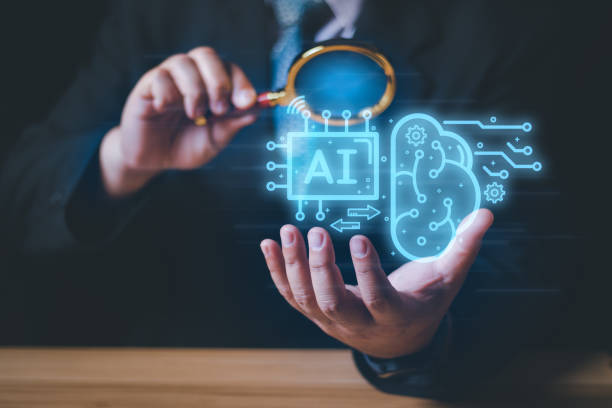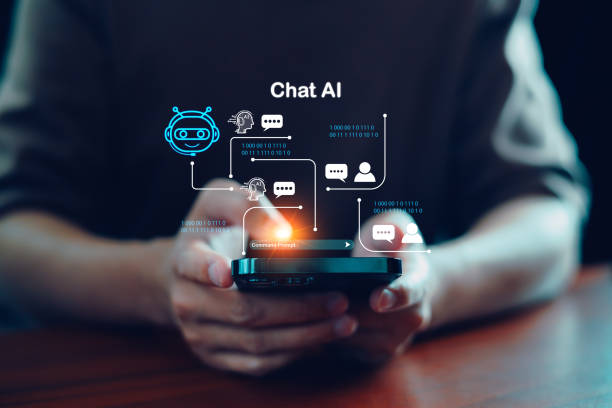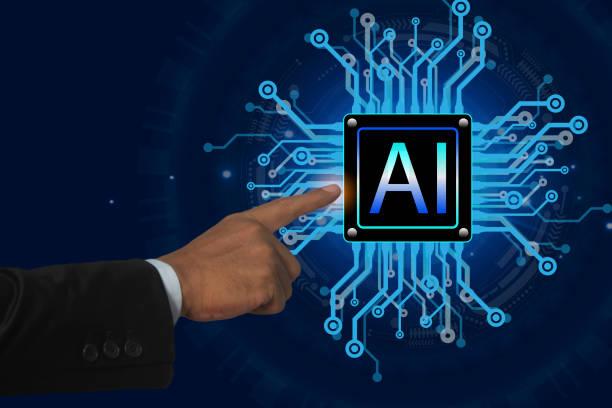What is Artificial Intelligence and Why is it Important?
![]()
Artificial Intelligence (#AI), as one of the most important technologies of the present century, is rapidly transforming various industries and professions.
But what exactly is #Artificial_Intelligence? In short, AI refers to the ability of a computer system to perform tasks that typically require human intelligence.
These tasks include learning, reasoning, problem-solving, natural language understanding, and pattern recognition.
The importance of AI stems from its ability to increase productivity, automate processes, improve decision-making, and accelerate innovation.
Given this potential, the future of AI careers is crucial for many professionals and job seekers, and understanding this technology can be very effective in choosing a suitable career path and preparing for changes in the job market.
Are you bothered by losing customers due to your online store’s outdated appearance or slow speed? Rasaweb’s expert team solves these problems with professional online store design!
✅ Increase customer trust and your brand’s credibility
✅ Stunning speed and excellent user experience
Get a free consultation with Rasaweb now ⚡
How the Future of AI Careers Transforms Jobs

Artificial intelligence will have a profound impact on the future of AI careers and will change the way work is done.
In some cases, AI can automate repetitive and routine tasks, which leads to a reduced need for human labor in these areas.
On the other hand, AI also creates new opportunities.
For example, the development, implementation, and maintenance of AI systems require new specialists with expertise in fields such as machine learning, data mining, and data engineering.
Furthermore, AI can help improve the quality of work and increase productivity, allowing employees to focus on more creative and strategic tasks instead of routine ones.
Therefore, understanding how AI impacts various jobs and being prepared to adapt to these changes is essential for success in the future of AI careers.
Jobs at Risk and New Jobs in the Field of Artificial Intelligence
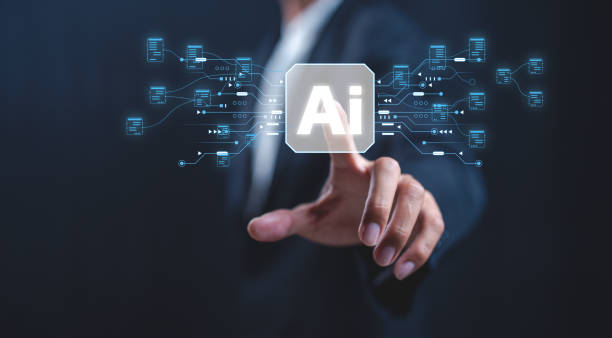
With the expansion of artificial intelligence, some jobs are at risk, while new jobs are also emerging in this field.
Jobs involving repetitive and automatable tasks, such as telephone operators, data entry clerks, and some production line workers, will be most affected.
On the other hand, the future of AI careers creates new job opportunities in fields such as data scientist, machine learning engineer, AI ethics specialist, and robotics developer.
These jobs require specialized skills in mathematics, statistics, programming, and deep knowledge of AI algorithms.
Additionally, jobs requiring soft skills such as creativity, complex problem-solving, and emotional intelligence are less at risk and may even be enhanced by AI tools.
For example, doctors and teachers can use AI for diagnosing diseases and providing personalized education.
Consequently, acquiring new skills and adapting to changes in the job market are essential for success in the future of AI careers.
| Jobs at Risk | New Jobs in AI |
|---|---|
| Telephone Operators | Data Scientist |
| Data Entry Clerks | Machine Learning Engineer |
| Production Line Workers | AI Ethics Specialist |
| Entry-level Financial Analysts | Robotics Developer |
Skills Required for Success in the Age of Artificial Intelligence
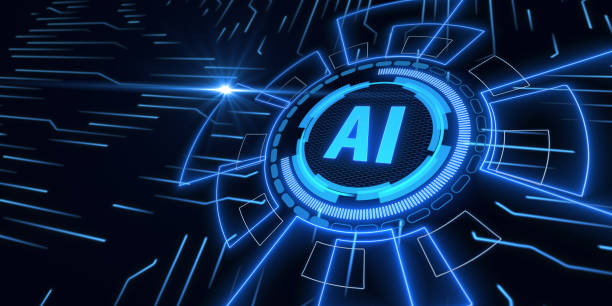
To succeed in the future of AI careers, both technical and soft skills are essential.
Technical skills include deep knowledge in mathematics, statistics, programming (especially Python and R), machine learning, data mining, and data engineering.
Additionally, familiarity with AI tools and platforms such as TensorFlow, PyTorch, and scikit-learn is important.
Soft skills include the ability for complex problem-solving, critical thinking, creativity, emotional intelligence, effective communication, and teamwork.
These skills help individuals face new challenges, provide innovative solutions, and collaborate effectively with colleagues.
Moreover, the ability for continuous learning and adaptation to rapid technological changes is crucial for success in the future of AI careers.
Continuous learning and updating knowledge and skills enable individuals to remain competitive in this dynamic and evolving field.
Disappointed by your online store’s low conversion rate? Rasaweb transforms your online store into a powerful tool for attracting and converting customers!
✅ Significant increase in visitor-to-buyer conversion rate
✅ Unparalleled user experience for increased customer satisfaction and loyalty⚡ Get a free consultation from Rasaweb!
How to Prepare for the Future of AI Careers
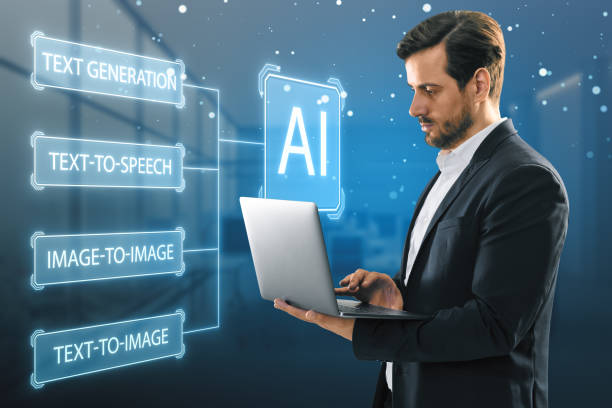
Preparing for the future of AI careers requires a multifaceted approach.
The first step is to acquire the necessary knowledge and skills in AI-related fields.
This can be done through online courses, workshops, degree programs, or self-study.
The second step is to gain practical experience in AI projects.
This experience can be acquired through internships, participation in open-source projects, or undertaking personal projects.
The third step is to network with professionals and active participants in the AI field.
This can be achieved by attending conferences, seminars, and relevant events.
The fourth step is continuous updating of knowledge and skills and keeping track of the latest developments in AI.
By adopting this approach, individuals can prepare themselves for the future of AI careers and benefit from the new job opportunities created by this technology.
The Role of Education in Shaping the Future of AI Careers
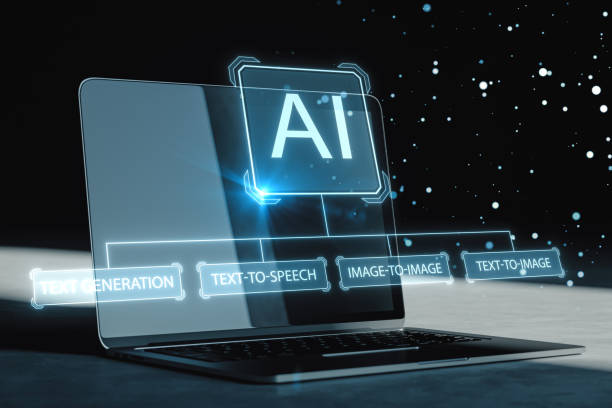
Education plays a vital role in shaping the future of AI careers.
Educational systems must align with changes in the job market and teach students the skills required for the AI era.
These skills include foundational knowledge in mathematics, statistics, and computer science, programming skills, critical thinking, complex problem-solving, creativity, and emotional intelligence.
Furthermore, educational systems must familiarize students with AI concepts, machine learning algorithms, and the applications of this technology in various industries.
Education must also emphasize the development of lifelong learning skills and adaptability to change, as the future of AI careers is constantly evolving.
By investing in education and equipping the next generation with the necessary skills, it can be ensured that individuals will be able to benefit from the new job opportunities created by AI.
Ethical and Social Challenges of Artificial Intelligence and its Impact on Jobs

The expansion of artificial intelligence brings with it numerous ethical and social challenges that can affect the future of AI careers.
One of these challenges is the issue of bias and discrimination in AI algorithms.
If the data used to train algorithms is biased, the algorithms may also act biasedly and make unfair decisions.
Another challenge is the issue of privacy and data security.
The use of AI for collecting and analyzing data can lead to violations of individual privacy and compromise the security of their personal information.
Moreover, the spread of automation and the replacement of human labor with AI can lead to increased unemployment and social inequality.
To address these challenges, it is necessary to develop regulations and ethical standards for the development and use of AI and to ensure their compliance.
Also, governments and organizations should implement programs to support affected workers and create new job opportunities in AI-related fields.
In this way, the benefits of AI can be reaped while preventing its negative effects on society.
The future of AI careers depends on solving these challenges.
| Ethical Challenges | Social Challenges |
|---|---|
| Bias in Algorithms | Increased Unemployment |
| Privacy Violation | Social Inequality |
| Data Security | Job Displacement |
The Role of Governments and Organizations in Supporting the Workforce in the Age of Artificial Intelligence
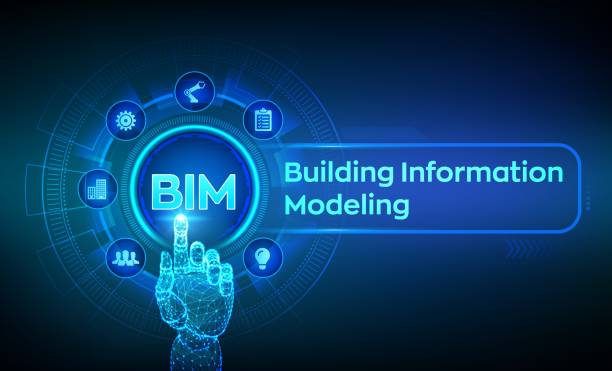
Governments and organizations play an important role in supporting the workforce in the age of artificial intelligence.
Governments can help the workforce adapt to changes caused by AI by investing in education, creating new job opportunities, providing retraining, and supporting affected workers.
Organizations can also help their employees acquire the necessary skills for the future of AI careers by providing internal training, creating career advancement opportunities, and fostering innovation and creativity.
Furthermore, governments and organizations must collaborate to develop and ensure compliance with ethical regulations and standards for AI development and use.
These regulations should help protect privacy, prevent discrimination, and ensure fairness and transparency in AI decision-making.
By taking these measures, the benefits of AI can be reaped while protecting the rights and interests of the workforce.
The future of AI careers requires the support of governments and organizations.
Tired of losing customers due to poor online store design? Solve this problem forever with Rasaweb!
✅ Increase sales and visitor-to-customer conversion rate
✅ Smooth and attractive user experience for your customers⚡ Get a free consultation
Probable Scenarios for the Future of AI Careers

Precisely predicting the future of AI careers is difficult, but probable scenarios can be considered.
In an optimistic scenario, AI is used as a powerful tool to increase productivity and improve the quality of life.
In this scenario, AI automates repetitive and routine tasks, allowing humans to focus on more creative and strategic tasks.
AI also creates new job opportunities in fields such as the development, implementation, and maintenance of AI systems.
In a pessimistic scenario, the spread of automation and the replacement of human labor with AI lead to increased unemployment and social inequality.
In this scenario, low and middle-level jobs are most affected, and the gap between the rich and the poor increases.
Another probable scenario is a combination of these two scenarios.
In this scenario, AI both creates new opportunities and eliminates some jobs.
To succeed in this scenario, individuals must acquire new skills and adapt to changes in the job market.
The future of AI careers could look like this.
Recommendations for Professionals and Job Seekers in the Age of Artificial Intelligence
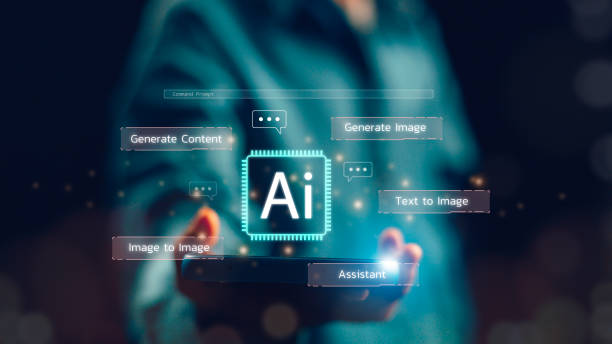
To succeed in the future of AI careers, professionals and job seekers should pay attention to the following recommendations.
Firstly, enhance your knowledge and skills in AI-related fields.
This can be done through online courses, workshops, degree programs, or self-study.
Secondly, gain practical experience in AI projects.
This experience can be acquired through internships, participation in open-source projects, or undertaking personal projects.
Thirdly, prioritize networking with professionals and active participants in the AI field.
This can be achieved by attending conferences, seminars, and relevant events.
Fourthly, do not forget to continuously update your knowledge and skills and keep track of the latest developments in AI.
Fifth, strengthen your soft skills.
These skills include the ability for complex problem-solving, critical thinking, creativity, emotional intelligence, effective communication, and teamwork.
Sixth, prepare yourself for change and adaptation.
The future of AI careers is constantly changing and evolving, and individuals must be able to adapt to these changes.
By following these recommendations, you can prepare yourself for the future of AI careers and benefit from the new job opportunities created by this technology.
Frequently Asked Questions
| Question | Answer |
|---|---|
| What impact will AI have on the future job market? | AI will automate repetitive jobs, but at the same time, it will create new and more complex jobs in areas such as the development, maintenance, and training of AI systems. |
| Which jobs are most at risk of being replaced by AI? | Jobs involving repetitive, rule-based tasks with low requirements for creativity or emotional intelligence, such as certain manufacturing jobs, data entry, and simple customer service, are most at risk. |
| What skills are essential for success in the future job market with AI? | Skills such as critical thinking, complex problem-solving, creativity, emotional intelligence, data literacy, the ability to work with AI, and lifelong learning are highly important. |
| Will AI cause widespread unemployment? | Some jobs will disappear, but history has shown that new technologies, instead of causing widespread unemployment, reshape the job market and create new jobs. Adaptability and retraining are crucial. |
| What new job opportunities emerge with the advent of AI? | Jobs such as Machine Learning Engineer, Data Scientist, AI Ethicist, Human-AI Interaction Designer, and Digital Transformation Consultant are among the new opportunities. |
| What is the role of education in preparing for the future job market with AI? | Education must focus on developing soft skills, computational thinking, digital literacy, and the ability for continuous learning to prepare individuals for future changes. |
| How can I prepare myself for changes in the job market caused by AI? | You can prepare yourself by learning new skills related to AI and data, strengthening soft skills, developing critical thinking and creativity, and adopting a habit of lifelong learning. |
| Will AI ethics become an important career field? | Yes, given increasing concerns about biases, privacy, and automated decision-making in AI, the role of AI ethics specialists will become crucial for ensuring its responsible development. |
| What is the importance of human-AI collaboration in the future of work? | Human-AI collaboration, rather than competition, will shape the future of the job market. AI can be a tool to increase productivity and allow humans to focus on more complex and creative tasks. |
| Which industries will be most affected by AI? | Almost all industries will be affected, but sectors such as healthcare, finance, transportation, manufacturing, education, and customer service are pioneers in adopting and transforming through AI. |
And other services of Rasaweb Advertising Agency in the field of advertising
- Smart Customer Journey Map: A combination of creativity and technology for online growth by using real data.
- Smart Sales Automation: A combination of creativity and technology to improve SEO ranking through SEO-driven content strategy.
- Smart Direct Marketing: Transform digital branding with the help of SEO-driven content strategy.
- Smart Link Building: Transform digital branding with the help of Google Ads management.
- Smart Marketing Automation: A dedicated service for increasing website traffic based on intelligent data analysis.
And over hundreds of other services in the field of internet advertising, advertising consulting, and organizational solutions
Internet Advertising | Advertising Strategy | Advertorials
Sources
Analytical AI Job OpportunitiesFuture of Jobs with AIAnalytical AI Challenges in the Job MarketAI Job Market Trends
? Is your business ready to leap into the digital world? Rasaweb Digital Marketing Agency, by providing comprehensive and innovative solutions, paves your path to success. From professional website design and SEO optimization to managing targeted advertising campaigns, we are with you every step of your business growth.
📍 Tehran, Mirdamad Street, next to Bank Markazi, Kazerun Jonubi Alley, Ramin Alley, No. 6

